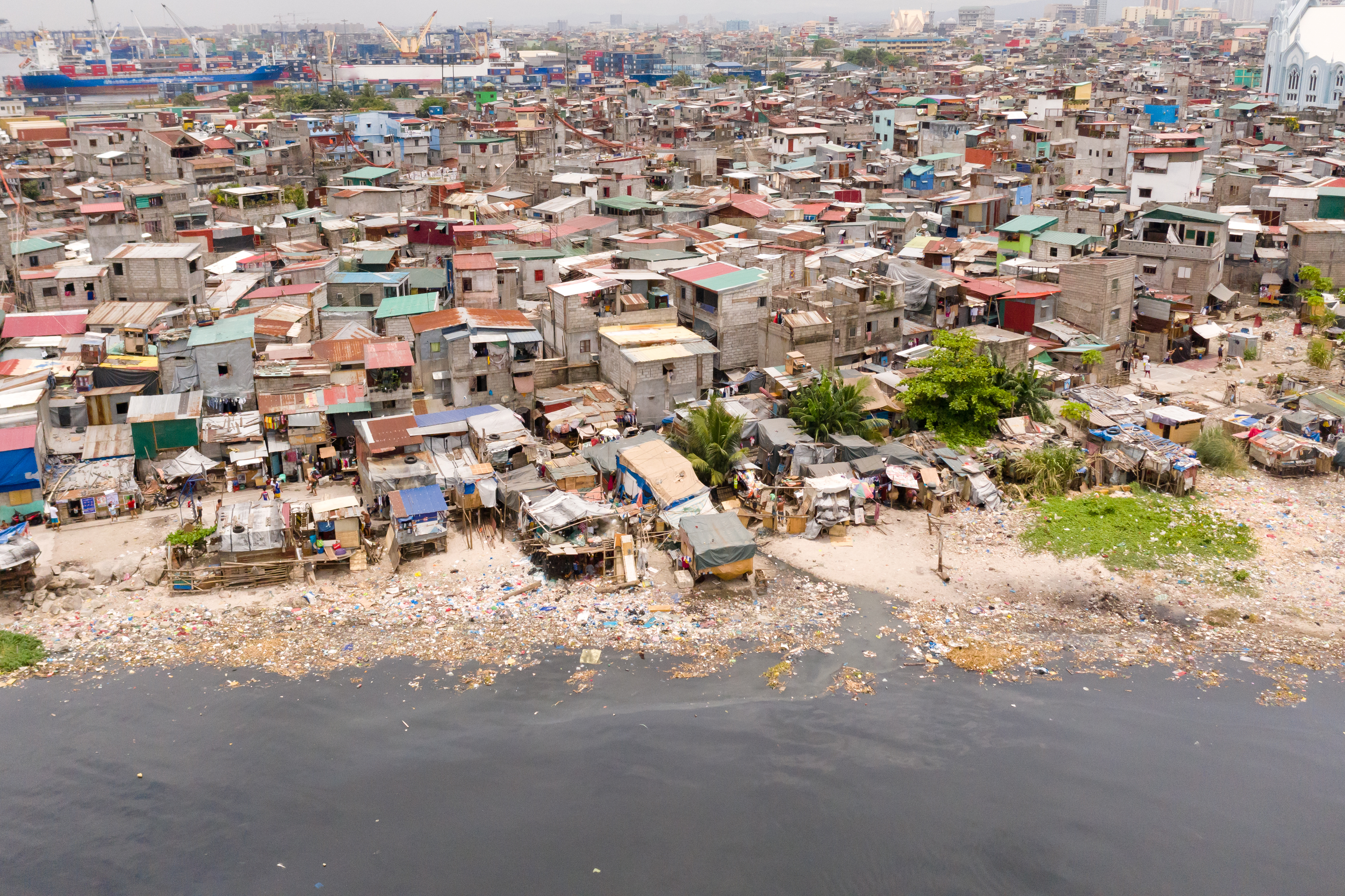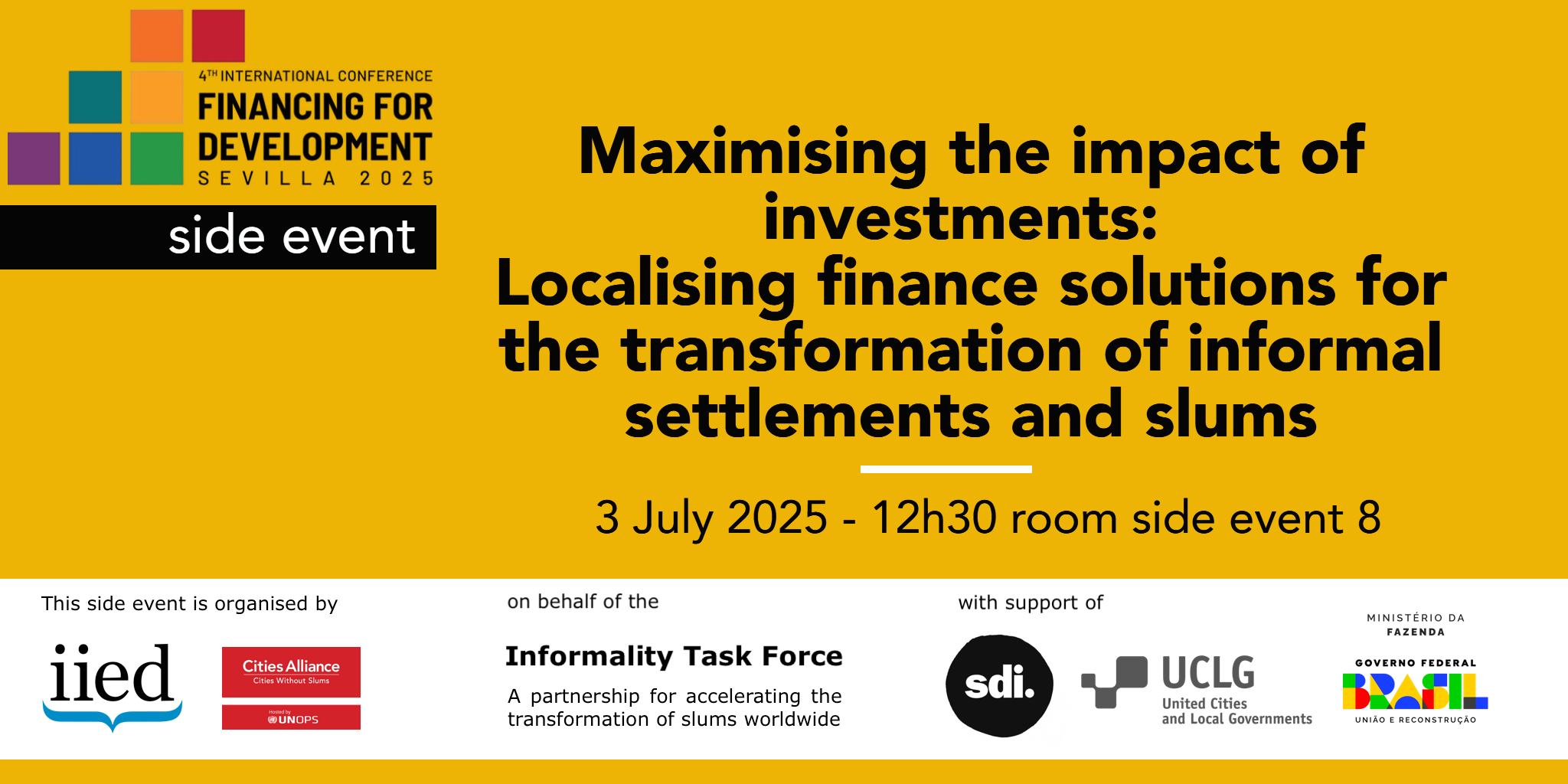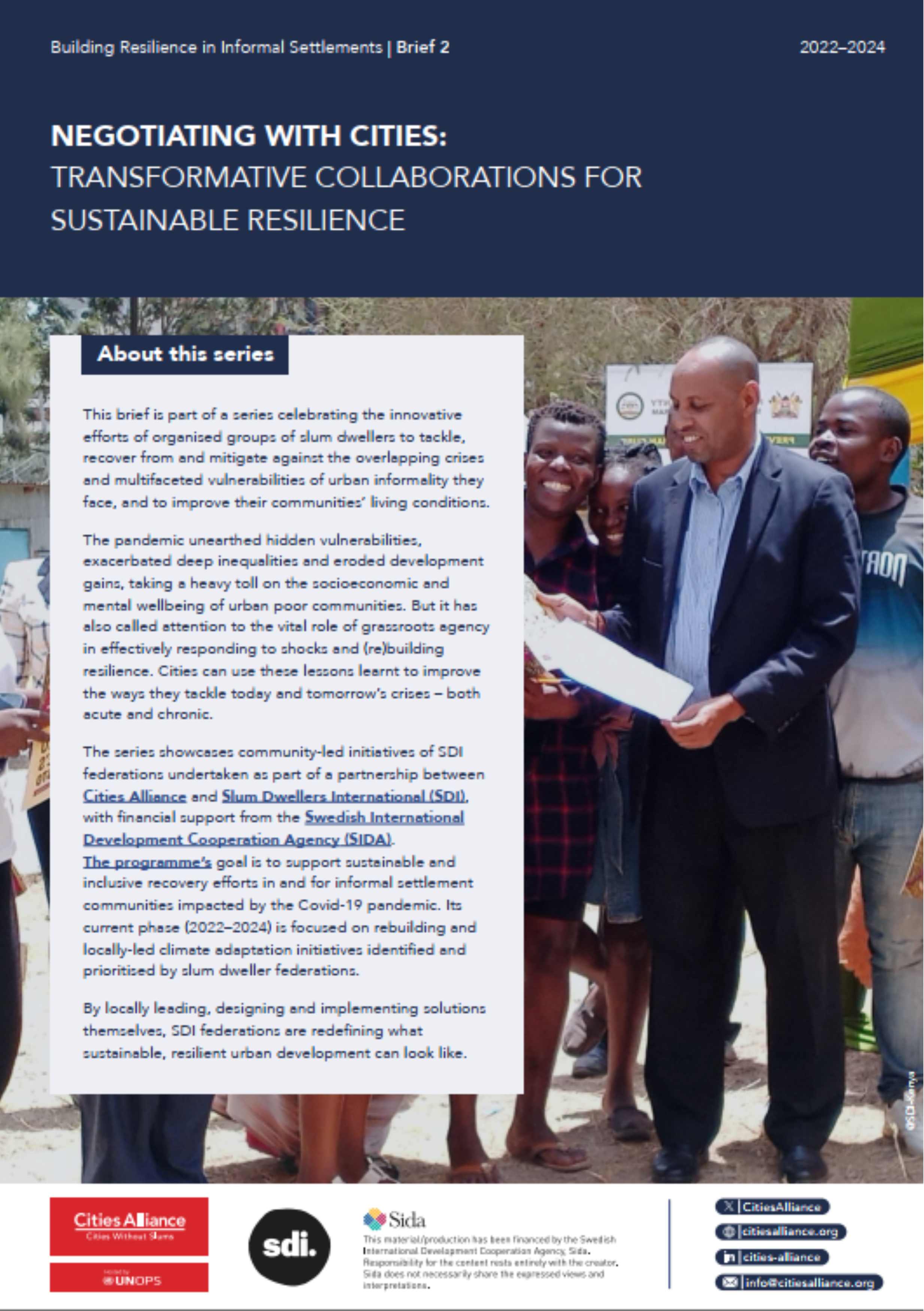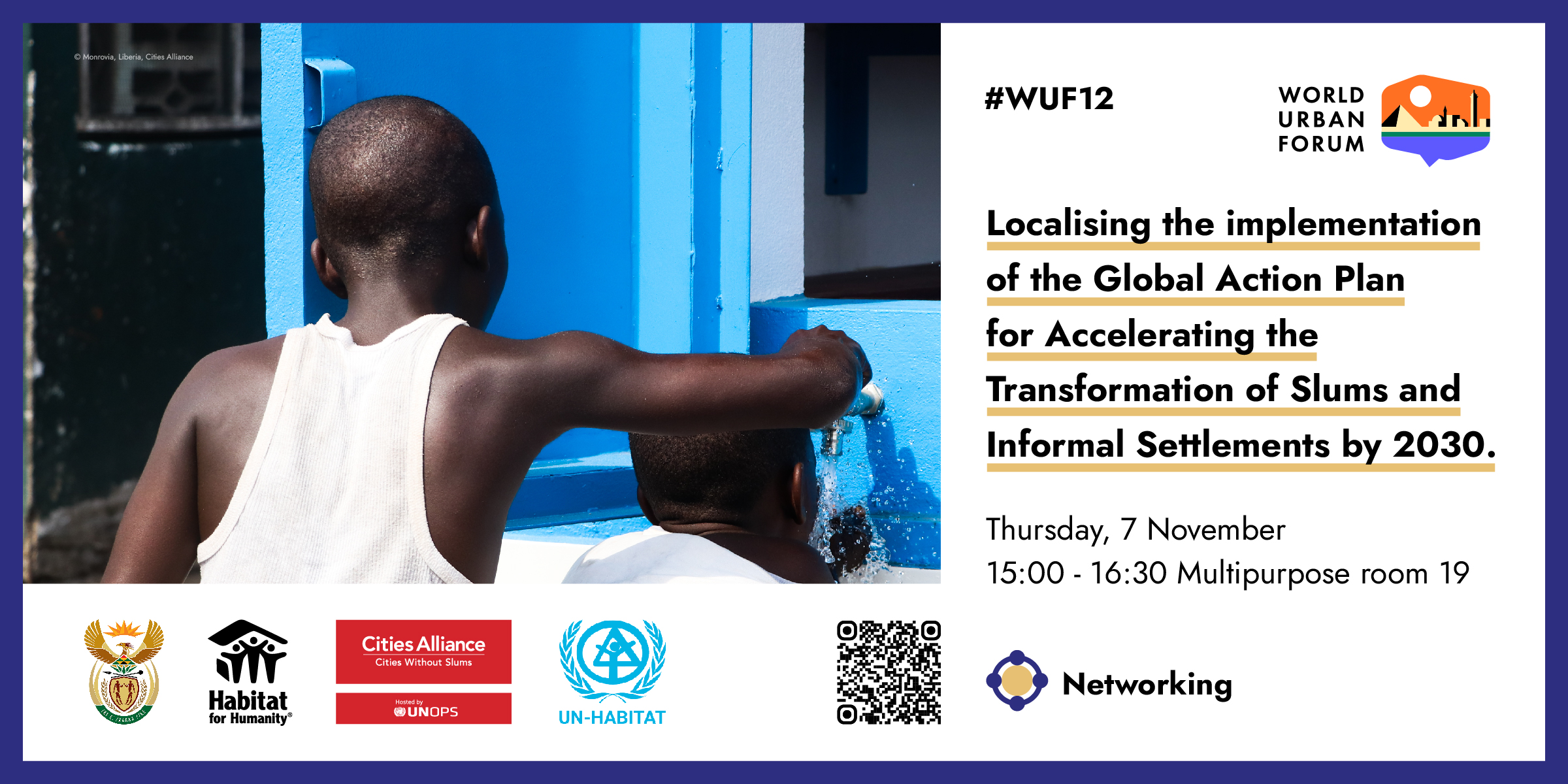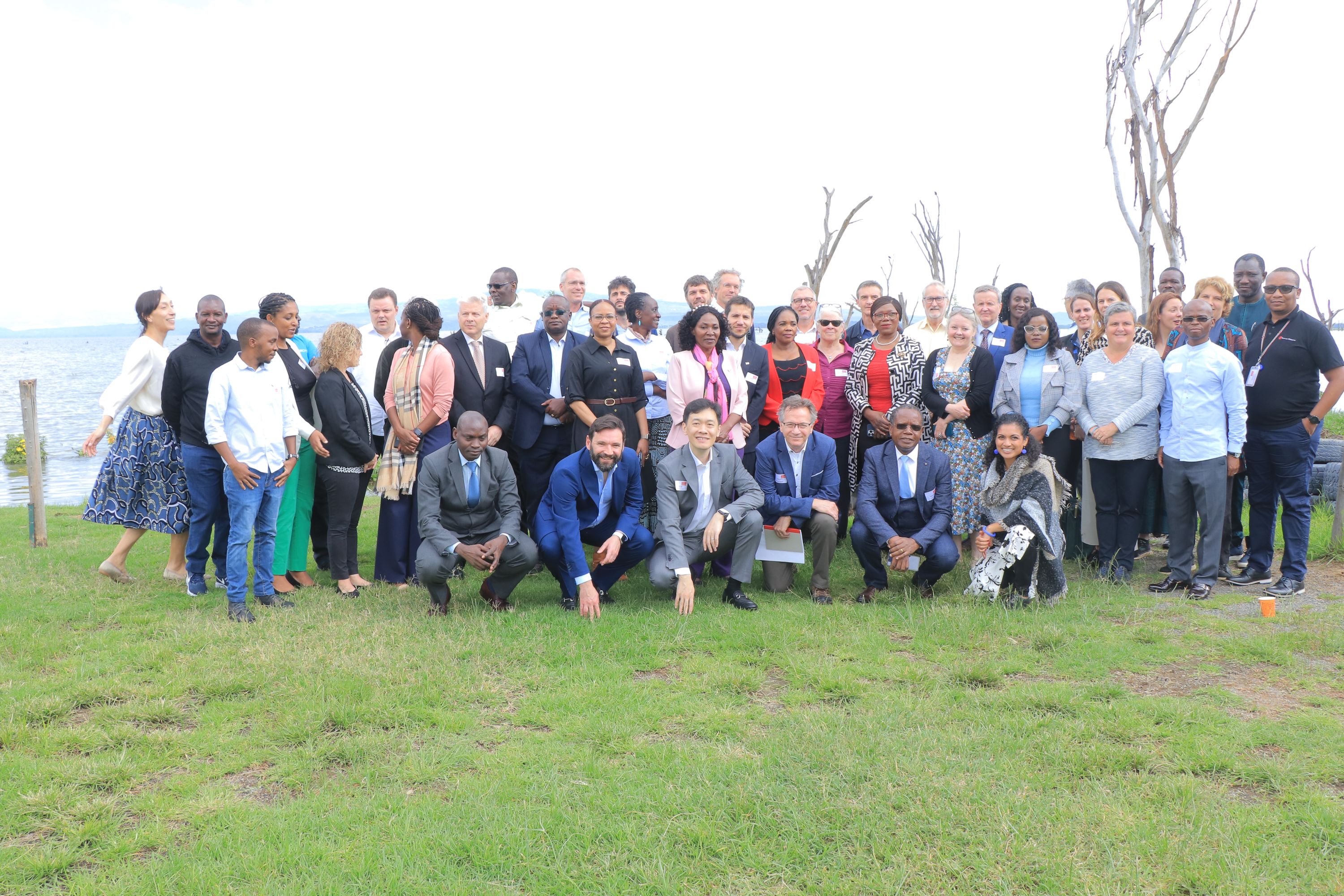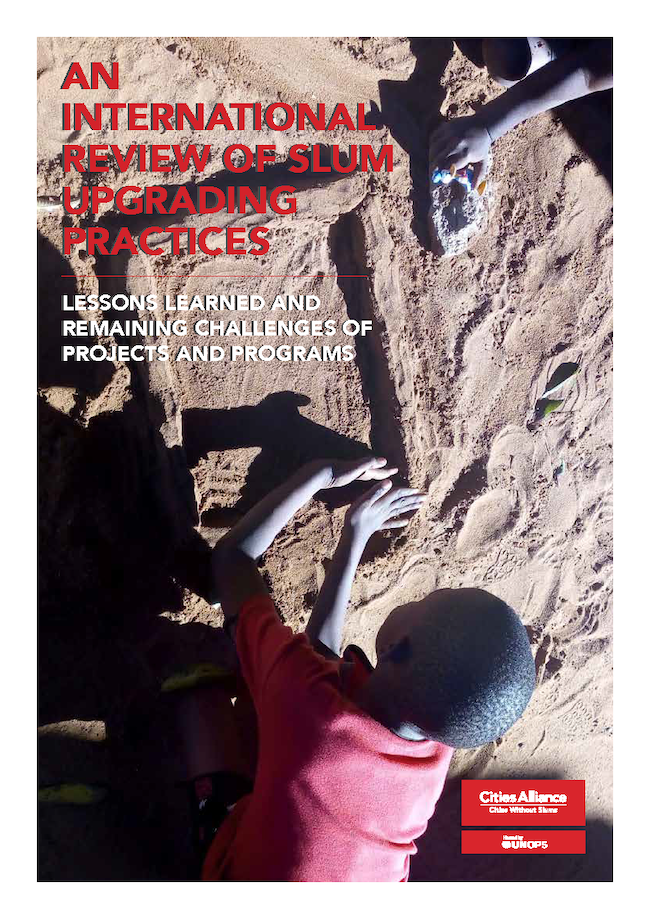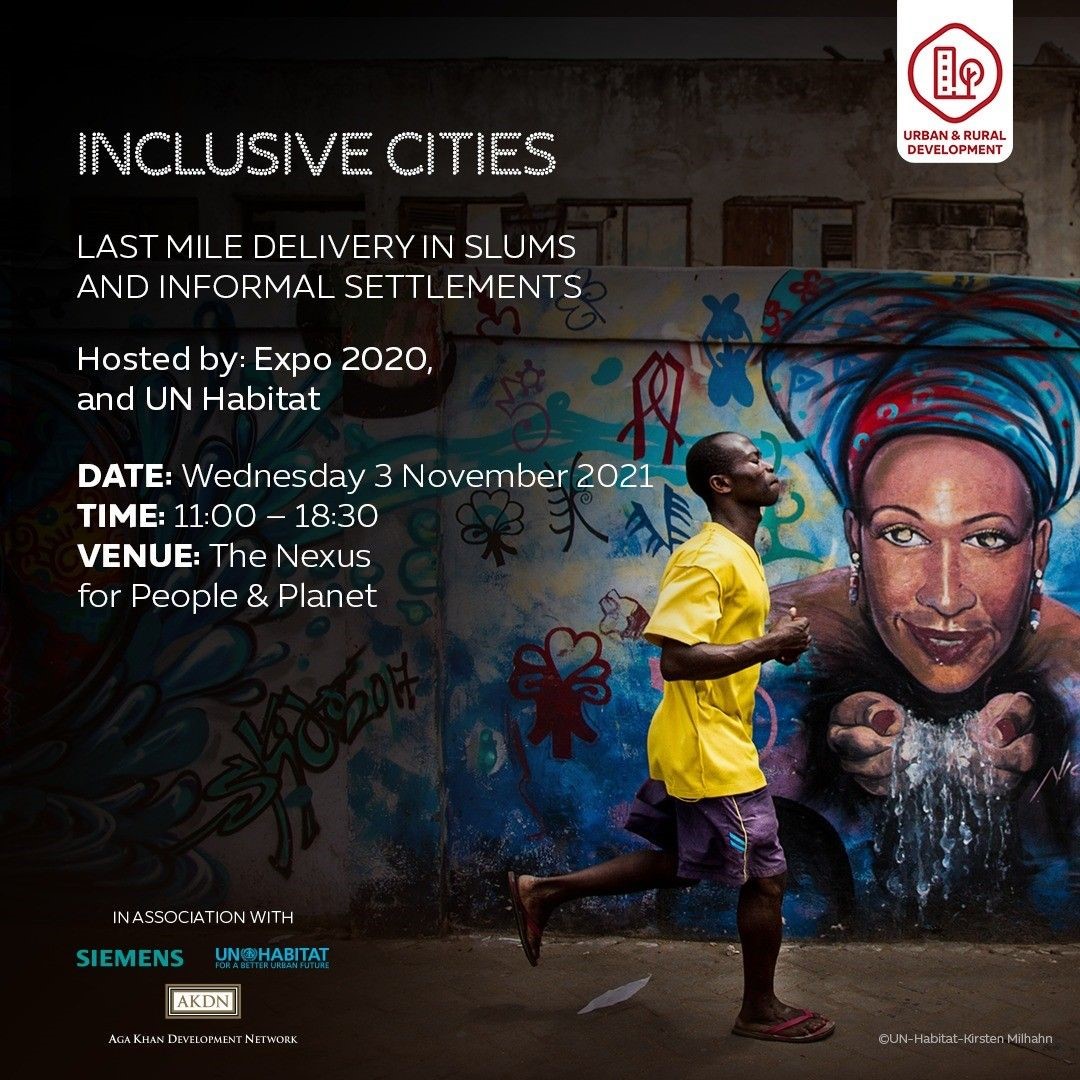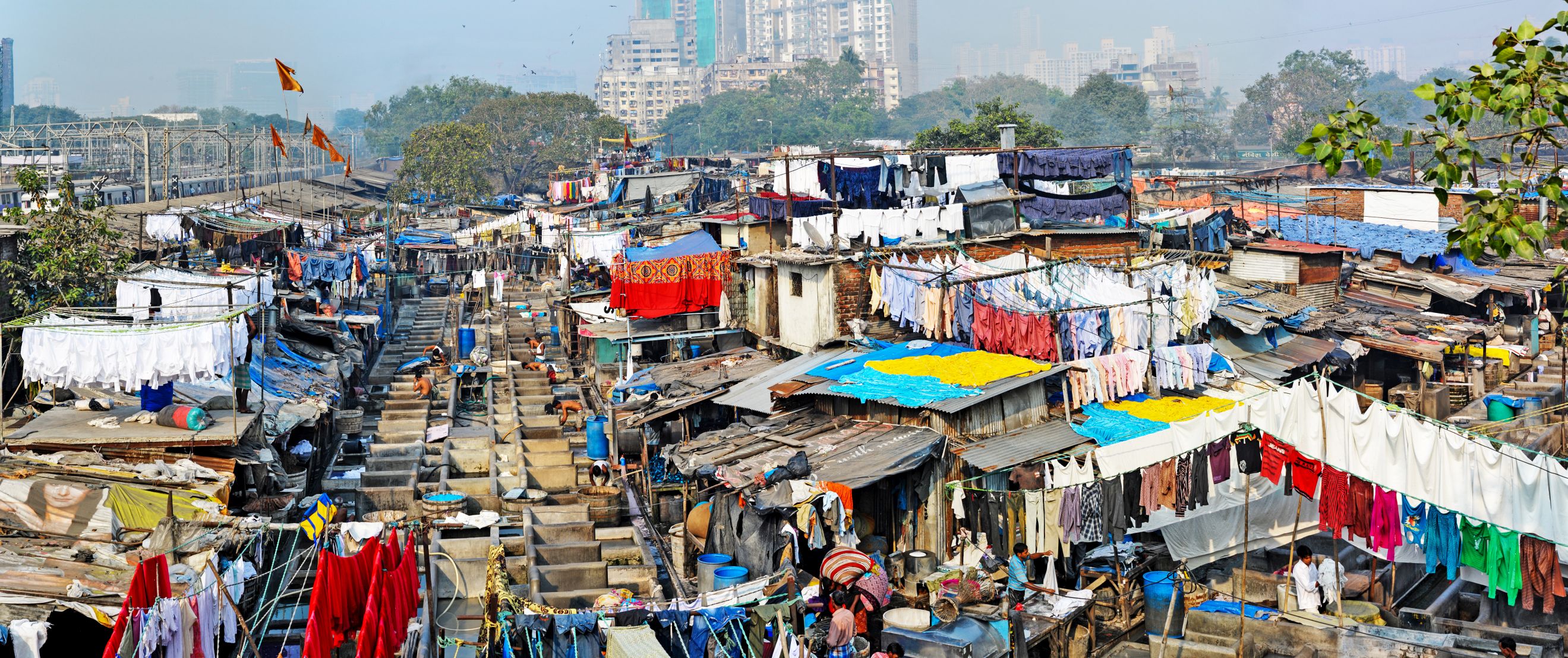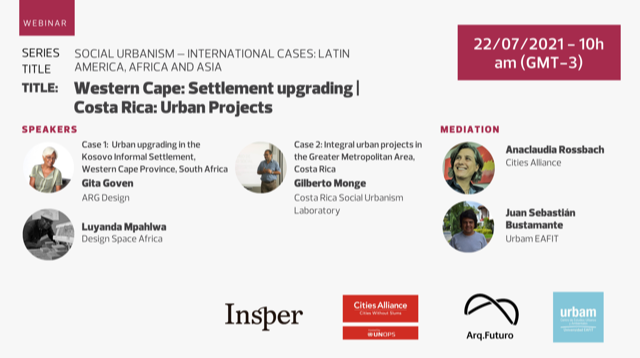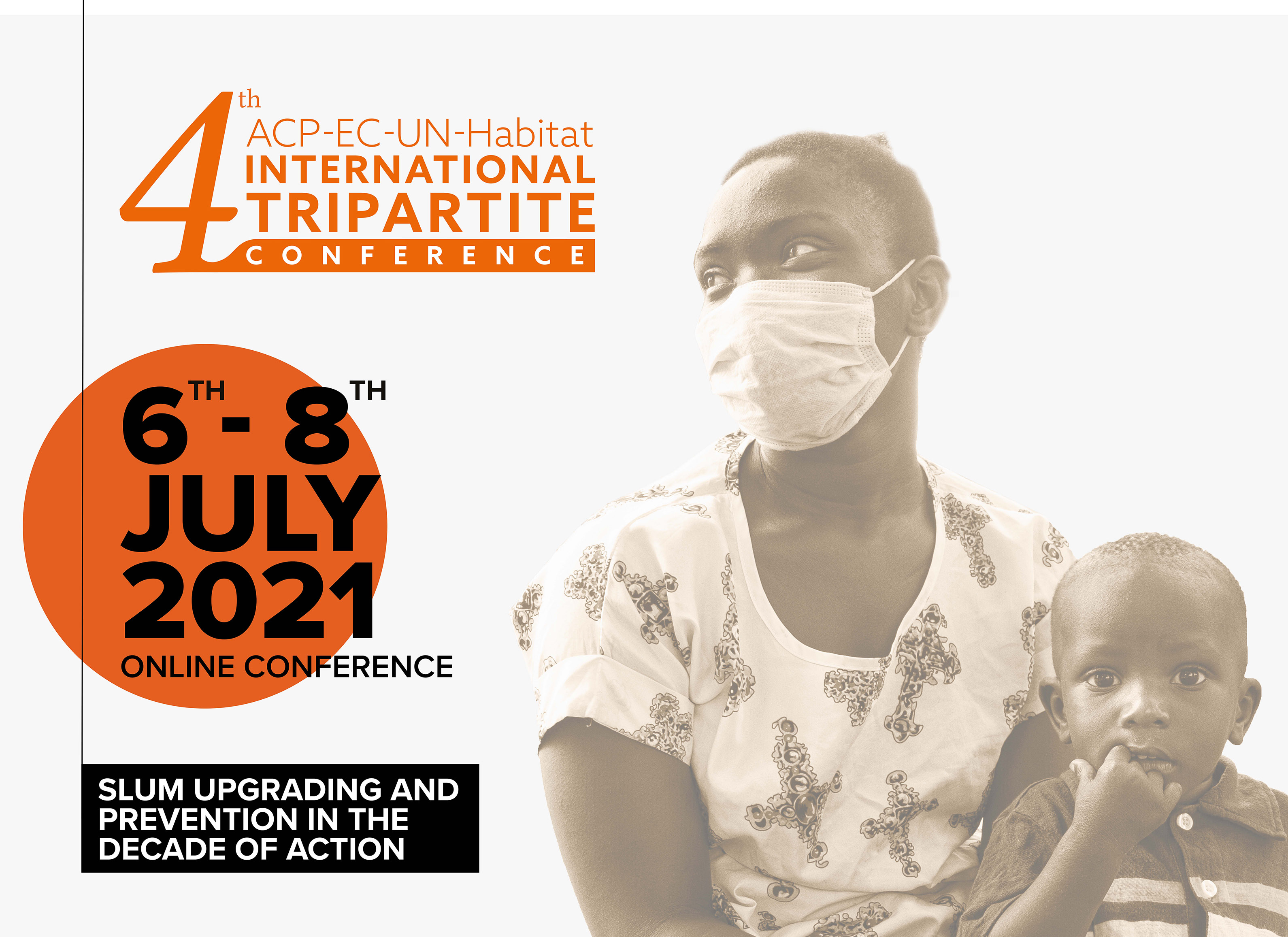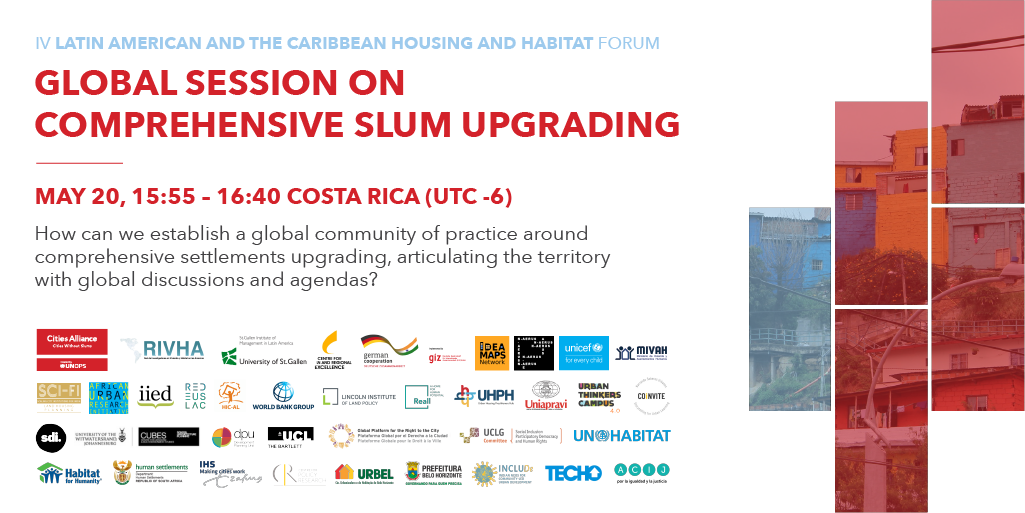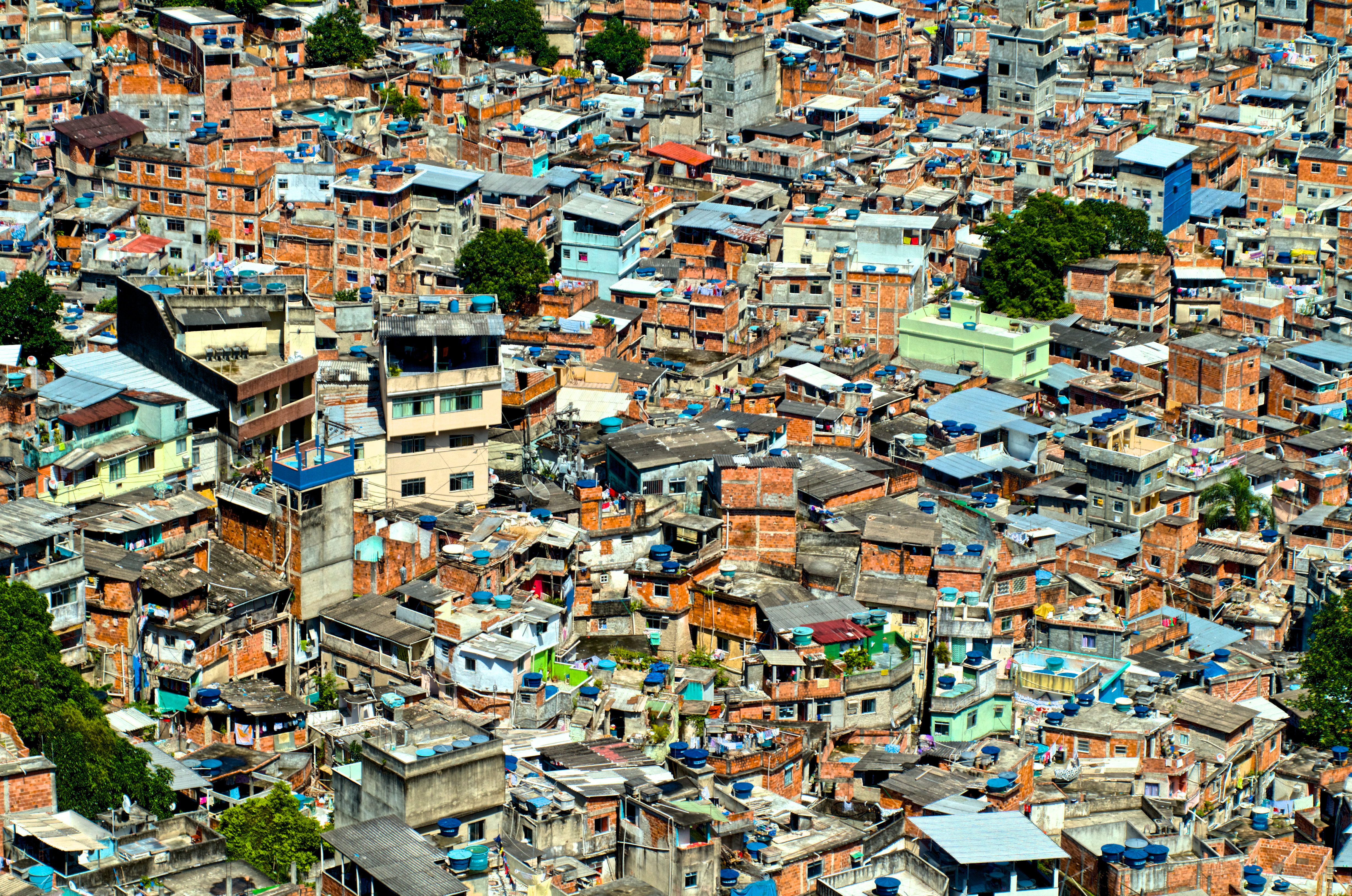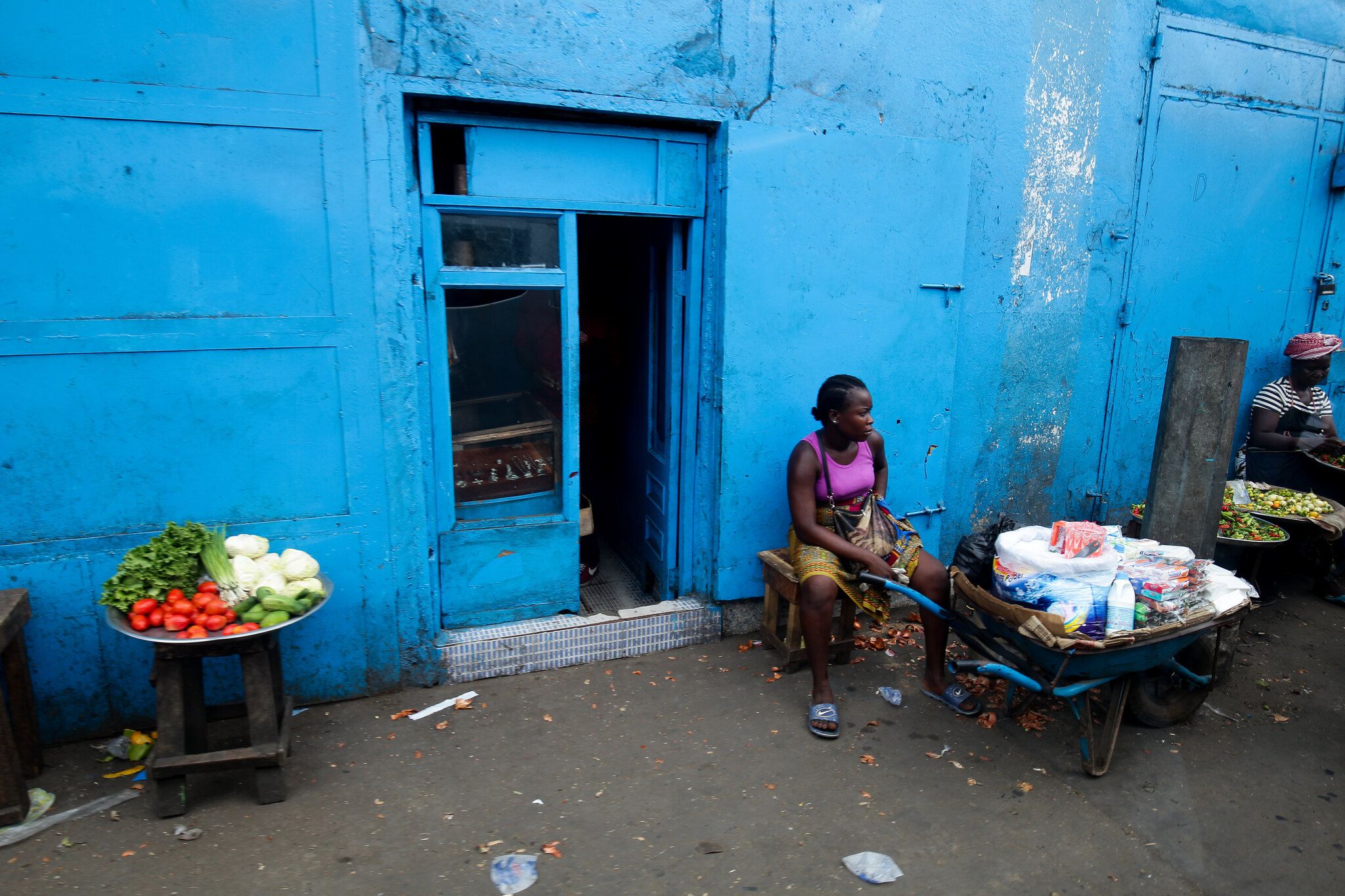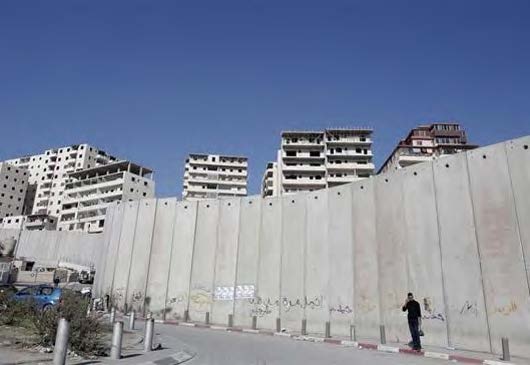The word “slum” is often used to describe informal settlements within cities that have inadequate housing and squalid, miserable living conditions. They are often overcrowded, with many people crammed into very small living spaces.
These settlements lack basic municipal services such as water, sanitation, waste collection, storm drainage, street lighting, paved sidewalks and roads for emergency access. Most also do not have easy access to schools, hospitals or public places for the community to gather. Many slums have been unserviced and unrecognised for long periods, over 20 years in some cities.
Like all informal settlements, housing in slums is built on land that the occupant does not have a legal claim to and without any urban planning or adherence to zoning regulations. In addition, slums are often areas where many social indicators are on a downward slide; for example, crime and unemployment are on the rise.
All slums are not the same, and some provide better living conditions than others. Likewise, slum dwellers are not a homogeneous population, but a diverse group of people with different interests, means and backgrounds.
Slums are also a significant economic force. In many cities, as much as 60 percent of employment is in the informal sector of the urban population.
Today, more than one billion people in the world live in slums. In the developing world, one out of every three people living in cities lives in a slum.
UN-HABITAT defines a slum household as a group of individuals living under the same roof in an urban area who lack one or more of the following:
- Durable housing of a permanent nature that protects against extreme climate conditions.
- Sufficient living space, which means not more than three people sharing the same room.
- Easy access to safe water in sufficient amounts at an affordable price.
- Access to adequate sanitation in the form of a private or public toilet shared by a reasonable number of people.
- Security of tenure that prevents forced evictions.
Why do slums develop?
Slums are not a new phenomenon. They have been part of the history of most cities, particularly in the early years of urbanisation and industrialisation as populations boomed. Slums are generally the only type of settlement affordable and accessible to the poor in cities, where competition for land and profits is intense.
There are two main reasons why slums develop: population growth and governance.
Population growth
Countries around the world are urbanising rapidly as more people migrate from rural areas to the cities and natural population growth continues to occur. Today, more than half the world’s population resides in urban areas. More than 90 percent of this urban growth is taking place in the developing world.
Urban migration happens for a number of reasons:
The pushing and pulling forces of migration. Some people migrate because they are pushed out of their place of origin by factors such as natural disasters or sustained ecological changes. Others are pulled to a new destination by better job prospects, education, health facilities, or freedom from restrictive social or cultural realities.
Low incomes from agriculture. Most people in rural areas work in the agricultural sector, which is highly dependent on weather. Also, rural land is limited, its fertility sometimes low or declining, land holdings are small, farm debts are high, and many households have become landless. As a result, overall rural incomes are low.
Better job prospects. In comparison with rural areas, urban areas offer dramatically increased job opportunities. In addition, because urban cultures are often less constrained than those in villages, cities can also offer greater prospects of upward social mobility.
People know what cities can offer them. Most migrants make a deliberate choice to stay or leave in rural areas. Improved transport, communications and links with earlier migrants have all made rural populations much more aware of the advantages and disadvantages of urban life, especially regarding job opportunities and housing.
Urban migration is often a survival strategy for rural households. Sometimes, rural households split into several groups located in different places—rural areas, small towns, and big cities—in order to diversify their sources of income and be less vulnerable to economic downturns.
Governance
Another reason slums develop is bad governance. Governments often fail to recognise the rights of the urban poor and incorporate them into urban planning, thereby contributing to the growth of slums.
In addition, many countries simply cannot respond to rapid urbanisation quickly enough. People are coming to cities far faster than the planning process can incorporate them. Often, they find their own land and build a shack before the government has a chance to learn of their existence.
The attitude of a government towards urbanisation is also an important component. Some governments take a hostile approach to urbanisation. They believe that if they provide urban services to the poor, it will attract urbanisation and cause the slums to grow. The problem with this view is that very few people come to the city for water or services—they come looking for work.
In other cases, governments take more of a passive approach to urbanisation. They either do not have the planning tools to deal with the rapid urbanisation that is happening, or the tools in place are not sufficiently responsive to the reality on the ground.
What can be done to prevent the development of new slums?
There are basic things a government can do to prevent new slums from developing. One is to recognise that urbanisation is going to happen. Sometimes governments believe that adopting alternative policies, such as focusing on rural development, will stop urbanisation. This approach is rarely effective.
Once governments accept the reality of urban growth, the next step is to plan for it and determine where the new residents will live. Authorities should identify land and plan for its settlement even if money is not available for urban services. Once people settle on that land and feel that they have a right to live there, they will begin investing in it. Over time, the area will upgrade incrementally.
What do we mean by land rights or secure tenure?
Land tenure is the right of an individual or group to occupy or use a piece of land. It can be via ownership or lease.
Land rights is about confidence in the future. People who are safe from eviction with a sense of long-term stability—whether they own the land or not—are much more likely to invest in their housing or community. Over time, these incremental improvements by residents can upgrade the entire community.
There must also be a clear legal framework behind land rights. Often, slum dwellers face significant obstacles to owning or obtaining the rights to land. Land markets are frequently dysfunctional, and inappropriate standards or regulations make it nearly impossible for local authorities to find enough well-located, serviceable and affordable land for the residents of overcrowded slum settlements.
In addition, control of land is often connected to political patronage and corruption, making it difficult to get clear information about land ownership, use and availability.
What do we mean by citizenship rights?
Slum dwellers are part of the urban populace, with the same democratic rights to environmental health and basic living conditions as all residents. These rights are often limited by a government’s ability to realise them.
The process of realising the rights of slum dwellers hinges on their capacity to engage actively with the government. It is a question of creating a space where slum dwellers and the government can engage in a dialogue about slums and upgrading their communities.
Through dialogue, the parties can begin to lay out their rights and responsibilities and design programmes that communities are able to respond to. This is an important part of the process; if communities don’t understand their responsibilities or a slum upgrading programme is beyond the reach of the slum dwellers, the programme has a much lower chance of success.
Slum upgrading is an integrated approach that aims to turn around downward trends in an area. These downward trends can be legal (land tenure), physical (infrastructure), social (crime or education, for example) or economic.
Slum upgrading is not simply about water or drainage or housing. It is about putting into motion the economic, social, institutional and community activities that are needed to turn an area around. These activities should be undertaken cooperatively among all parties involved—residents, community groups, businesses as well as local and national authorities if applicable.
The activities tend to include the provision of basic services such as housing, streets, footpaths, drainage, clean water, sanitation, and sewage disposal. Often, access to education and health care are also part of upgrading.
In addition to basic services, one of the key elements of slum upgrading is legalising or regularising properties and bringing secure land tenure to residents.
Ultimately, upgrading efforts aim to create a dynamic in the community where there is a sense of ownership, entitlement and inward investment in the area.
Is slum upgrading different from urban upgrading?
Urban upgrading is broadly defined as physical, social, economic, organisational, and environmental improvements undertaken cooperatively among citizens, community groups, businesses, and local authorities to ensure sustained improvements in the quality of life for residents.
Generally, urban upgrading is about striking a balance between investing in areas that attract investment to the city on a global level and in programmes that invest in the citizens of the city so they can reap the benefits as well. The interconnectivity of the two is crucial to a successful development strategy of any city.
Slum upgrading is an integrated component of investing in citizens. Residents of a city have a fundamental right to environmental health and basic living conditions. As such, cities must ensure the citizenship rights of the urban poor.
Why is slum upgrading important?
The main reason for slum upgrading is that people have a fundamental right to live with basic dignity and in decent conditions.
On another level, it is in a city’s best interest to upgrade slums and prevent the formation of new slums. If slums are allowed to deteriorate, governments can lose control of the populace and slums become areas of crime and disease that impact the whole city.
Slum upgrading benefits a city by:
- Fostering inclusion. Slum upgrading addresses serious problems affecting slum residents, including illegality, exclusion, precariousness and barriers to services, credit, land, and social protection for vulnerable populations such as women and children.
- Promoting economic development. Upgrading releases the vast untapped resources of slum dwellers that have skills and a huge desire to be a more productive part of the economy, but are held back by their status and marginality.
- Addressing overall city issues. It deals with city issues by containing environmental degradation, improving sanitation, lowering violence and attracting investment.
- Improving quality of life. It elevates the quality of life of the upgraded communities and the city as a whole, providing more citizenship, political voice, representation, improved living conditions, increased safety and security.
- Providing shelter for the poor. It is the most effective way to provide shelter to the urban poor at a very large scale and at the lowest cost.
In addition, slum upgrading is:
- Affordable. Slum upgrading costs less and is more effective than relocation to public housing. Developing land with basic services costs even less.
- Flexible. It can be done incrementally by the city and by the residents at a pace that is technically and financially possible for both.
- Viable. The poor can and are willing to pay for improved services and homes.
Why not tear down the slums and start over?
Sometimes it is necessary to tear down a slum. In some cases, slums are built on land that is unsafe or fundamentally unstable. For example, a slum may develop on an infill site where there is methane gas that can cause serious health problems. Or, slums could be located on areas that are prone to land or mudslides. In such cases, relocation may be the best option.
Generally, though, slums are built on land that is well-located and provides easy access to the city and its opportunities. Most slum evictions occur when local authorities want to remove slums located on prime real estate and turn the land over to developers or other vested interests.
Location is critically important for the urban poor. They need to be near the city where job opportunities are accessible.
What factors are needed for slum upgrading to be successful?
There are many factors that are needed for a slum upgrading programme to be successful. The two most important ones are strong political will on behalf of government and strong buy-in on the part of communities. There must also be a sense of partnership among all parties.
Moreover, the slum upgrading initiative must meet a real need; people must want it and understand why it is important.
It is also beneficial if upgrading activities are city-wide and involve partners beyond the slums themselves, which is especially important in implementation. There must be incentives for agencies to work with the poor; good communication and coordination among stakeholders; and clearly defined roles for the various agencies involved.
To keep slum upgrading going, it should be a priority in financing, institutions and regulations.
Ten principles that shape the policy framework for a successful slum upgrading programme.
Slum upgrading is most effective when linked with other initiatives or goals, such as:
- Poverty alleviation
- Health and education
- Preservation of historic city centers
- Environmental and sanitation improvement
- City-wide infrastructure and transportation expansion
What are some of the challenges in slum upgrading?
The primary challenges in slum upgrading are achieving some kind of coherence in the community and finding solutions to a wide range of needs.
Slums are not homogeneous, and there many diverse vested interests that exist in slums. In addition to the poor who are simply looking for a decent place to live, there can be criminal elements who take advantage of the informal space, or landlords who make small fortunes renting out shacks to people over time.
All of these interests must be properly understood and brought into the planning process. The best way to do this is through negotiated development, in which people participate in negotiating their rights and understand that all the different interests have rights that need to be brought into the equation.
In some cases, for example, slum upgrading projects have failed because there are people in the community who believe they won’t qualify for an upgrading programme because they are not citizens or residents of the country.
How long does it take for a slum to be upgraded?
Generally, as adequate policies are implemented and the local economy grows, slums gradually disappear as residents invest in their homes and upgrade them over time. The shack slowly becomes a house, and the slum becomes a decent suburb. How quickly this process happens depends largely on how fast a city’s economy grows and how effective the urban policies are.
It is important to note that there are different phases of slum upgrading projects. Some phases are accomplished relatively quickly; it doesn’t take long to install urban services such as a water supply system or drainpipes, for example.
Other phases take more time. Turning a poor, informal settlement into an integrated city and establishing the necessary linkages into the economy can take years.
What is the role of gender in slum upgrading?
In most societies, women and men tend to have different roles, responsibilities, needs and perceptions. As a result, slum upgrading generally affects women and men differently. Experience has shown that making a conscious effort to incorporate the gender dimensions of slum upgrading results in a more successful initiative.
Women play a vital role in slum upgrading. Increasingly, more and more slum households are headed by women. Many are women with children whose husbands have left them behind to look for work elsewhere. In other cases, women have fled to the slums to escape domestic violence, discrimination in rural areas, or difficult situations created by divorce or marital disputes.
A key aspect of slum upgrading is community participation, and women are at the heart of the community—they are most frequently the ones who save money, look after the children, and care for the sick or elderly. The skills they have used to run households can be applied on a community-wide scale to run a savings scheme, for example, or manage a community construction project.
The broader issue of gender, and the resulting vulnerability, is also a factor. While both men and women living in slums face hardships, women—especially widows—are particularly vulnerable. They are more likely to be victims of violence or subject to cultural norms that do not give them the same legal rights or status as a man.
In addition, women are more vulnerable to poverty because they often have limited access to land control and assets outside of marriage or within family ties. These issues must be taken into consideration when planning or implementing a slum upgrading programme.
What are some examples of successful slum upgrading projects?
Determining whether a slum upgrading initiative has been successful depends on expectation and what the goals of the initiative are.
In some cases, the goal is the provision of urban services. In South Africa, for example, there have been some very successful initiatives in which people who had no urban services were supplied with water, sanitation, and access to housing.
Sometimes, access to land has been a fundamental issue in slum upgrading programmes, as in Brazil. There have been numerous cases where slum dwellers were given a right to the land and had a real sense that they would not be evicted.
In other areas, such as Latin America, crime is a major problem in slums, and there have been concerted efforts to reduce crime and increase public safety.
The bottom line is that with a growing economy, government commitment to slum upgrading, and community dedication, the slum will gradually transform into a suburb.
Is slum upgrading different from urban upgrading?
Urban upgrading is broadly defined as physical, social, economic, organisational, and environmental improvements undertaken cooperatively among citizens, community groups, businesses, and local authorities to ensure sustained improvements in the quality of life for residents.
Generally, urban upgrading is about striking a balance between investing in areas that attract investment to the city on a global level and in programmes that invest in the citizens of the city so they can reap the benefits as well. The interconnectivity of the two is crucial to a successful development strategy of any city.
Slum upgrading is an integrated component of investing in citizens. Residents of a city have a fundamental right to environmental health and basic living conditions. As such, cities must ensure the citizenship rights of the urban poor.
Why is slum upgrading important?
The main reason for slum upgrading is that people have a fundamental right to live with basic dignity and in decent conditions.
On another level, it is in a city’s best interest to upgrade slums and prevent the formation of new slums. If slums are allowed to deteriorate, governments can lose control of the populace and slums become areas of crime and disease that impact the whole city.
Slum upgrading benefits a city by:
- Fostering inclusion. Slum upgrading addresses serious problems affecting slum residents, including illegality, exclusion, precariousness and barriers to services, credit, land, and social protection for vulnerable populations such as women and children.
- Promoting economic development. Upgrading releases the vast untapped resources of slum dwellers that have skills and a huge desire to be a more productive part of the economy, but are held back by their status and marginality.
- Addressing overall city issues. It deals with city issues by containing environmental degradation, improving sanitation, lowering violence and attracting investment.
- Improving quality of life. It elevates the quality of life of the upgraded communities and the city as a whole, providing more citizenship, political voice, representation, improved living conditions, increased safety and security.
- Providing shelter for the poor. It is the most effective way to provide shelter to the urban poor at a very large scale and at the lowest cost.
In addition, slum upgrading is:
- Affordable. Slum upgrading costs less and is more effective than relocation to public housing. Developing land with basic services costs even less.
- Flexible. It can be done incrementally by the city and by the residents at a pace that is technically and financially possible for both.
- Viable. The poor can and are willing to pay for improved services and homes.
Why not tear down the slums and start over?
Sometimes it is necessary to tear down a slum. In some cases, slums are built on land that is unsafe or fundamentally unstable. For example, a slum may develop on an infill site where there is methane gas that can cause serious health problems. Or, slums could be located on areas that are prone to land or mudslides. In such cases, relocation may be the best option.
Generally, though, slums are built on land that is well-located and provides easy access to the city and its opportunities. Most slum evictions occur when local authorities want to remove slums located on prime real estate and turn the land over to developers or other vested interests.
Location is critically important for the urban poor. They need to be near the city where job opportunities are accessible.
What factors are needed for slum upgrading to be successful?
There are many factors that are needed for a slum upgrading programme to be successful. The two most important ones are strong political will on behalf of government and strong buy-in on the part of communities. There must also be a sense of partnership among all parties.
Moreover, the slum upgrading initiative must meet a real need; people must want it and understand why it is important.
It is also beneficial if upgrading activities are city-wide and involve partners beyond the slums themselves, which is especially important in implementation. There must be incentives for agencies to work with the poor; good communication and coordination among stakeholders; and clearly defined roles for the various agencies involved.
To keep slum upgrading going, it should be a priority in financing, institutions and regulations.
Ten principles that shape the policy framework for a successful slum upgrading programme.
Slum upgrading is most effective when linked with other initiatives or goals, such as:
- Poverty alleviation
- Health and education
- Preservation of historic city centers
- Environmental and sanitation improvement
- City-wide infrastructure and transportation expansion
What are some of the challenges in slum upgrading?
The primary challenges in slum upgrading are achieving some kind of coherence in the community and finding solutions to a wide range of needs.
Slums are not homogeneous, and there many diverse vested interests that exist in slums. In addition to the poor who are simply looking for a decent place to live, there can be criminal elements who take advantage of the informal space, or landlords who make small fortunes renting out shacks to people over time.
All of these interests must be properly understood and brought into the planning process. The best way to do this is through negotiated development, in which people participate in negotiating their rights and understand that all the different interests have rights that need to be brought into the equation.
In some cases, for example, slum upgrading projects have failed because there are people in the community who believe they won’t qualify for an upgrading programme because they are not citizens or residents of the country.
How long does it take for a slum to be upgraded?
Generally, as adequate policies are implemented and the local economy grows, slums gradually disappear as residents invest in their homes and upgrade them over time. The shack slowly becomes a house, and the slum becomes a decent suburb. How quickly this process happens depends largely on how fast a city’s economy grows and how effective the urban policies are.
It is important to note that there are different phases of slum upgrading projects. Some phases are accomplished relatively quickly; it doesn’t take long to install urban services such as a water supply system or drainpipes, for example.
Other phases take more time. Turning a poor, informal settlement into an integrated city and establishing the necessary linkages into the economy can take years.
What is the role of gender in slum upgrading?
In most societies, women and men tend to have different roles, responsibilities, needs and perceptions. As a result, slum upgrading generally affects women and men differently. Experience has shown that making a conscious effort to incorporate the gender dimensions of slum upgrading results in a more successful initiative.
Women play a vital role in slum upgrading. Increasingly, more and more slum households are headed by women. Many are women with children whose husbands have left them behind to look for work elsewhere. In other cases, women have fled to the slums to escape domestic violence, discrimination in rural areas, or difficult situations created by divorce or marital disputes.
A key aspect of slum upgrading is community participation, and women are at the heart of the community—they are most frequently the ones who save money, look after the children, and care for the sick or elderly. The skills they have used to run households can be applied on a community-wide scale to run a savings scheme, for example, or manage a community construction project.
The broader issue of gender, and the resulting vulnerability, is also a factor. While both men and women living in slums face hardships, women—especially widows—are particularly vulnerable. They are more likely to be victims of violence or subject to cultural norms that do not give them the same legal rights or status as a man.
In addition, women are more vulnerable to poverty because they often have limited access to land control and assets outside of marriage or within family ties. These issues must be taken into consideration when planning or implementing a slum upgrading programme.
What are some examples of successful slum upgrading projects?
Determining whether a slum upgrading initiative has been successful depends on expectation and what the goals of the initiative are.
In some cases, the goal is the provision of urban services. In South Africa, for example, there have been some very successful initiatives in which people who had no urban services were supplied with water, sanitation, and access to housing.
Sometimes, access to land has been a fundamental issue in slum upgrading programmes, as in Brazil. There have been numerous cases where slum dwellers were given a right to the land and had a real sense that they would not be evicted.
In other areas, such as Latin America, crime is a major problem in slums, and there have been concerted efforts to reduce crime and increase public safety.
The bottom line is that with a growing economy, government commitment to slum upgrading, and community dedication, the slum will gradually transform into a suburb.
Ten principles that shape the policy framework
for a successful slum upgrading programme
1. Accept and acknowledge slums and their importance.
Achieving a city without slums begins with a shared understanding that slums and their residents are an integral part of the city, and that slum residents have a right to the city and to its services.
2. Political will and leadership makes slum upgrading possible.
Both national and local governments must provide the vision, commitment, and leadership required to sustain nationwide upgrading. Government authorities at all levels and other stakeholders make and uphold the commitment to upgrade slums because is in the best interest of the city and nation.
3. Include the slums in the city’s plans.
Create a strategy and plan how to transform slums as part of the core business of managing and improving the city and its economy. An effective tool to define these plans is to carry out a City Development Strategy (CDS) to identify city priorities, lead to producing a workable plan for the upgrading programme.
4. Mobilise partners.
Partnership is important to successful upgrading. Successful slum upgrading is a highly participatory endeavour. It is also very comprehensive and complex, needing coordinated inputs from many local government agencies as well as those from outside the public sector.
5. Provide security of tenure.
Secure tenure is at the very centre of slum upgrading. Without some form of legal tenure security the situation of slum residents and their neighbourhoods is uncertain: they could be removed at any time. People who fear eviction will not invest in their houses. They will invest, however, once they have a sense of permanence and realise that they can sell their house and recoup their investment. Furthermore illegality and informality make them susceptible to exploitation, corruption and extortion.
6. Plan with, not for, the slum communities.
Residents are the main partners of slum upgrading programmes. Because their futures are directly affected by the decisions, and because they can help in the upgrading process, it is necessary that they be fully informed and actively involved.
7. Ensure continuity of effort over time and institutionalise the programme.
Upgrading is an incremental, but sustained process. When slum upgrading is municipal a core operation, it produces cohesion, coordination, and increases efficiencies in service provision.
8. Allocate budget, design subsidies, mobilise public and non-public resources.
Stable and consistent national and local budgetary allocations are needed for slum upgrading. Large-scale upgrading programmes need central government support backed by corresponding national budgetary allocations, subsidy policies and human resources.
9. Find alternatives to new slum formation.
Upgrading existing slums and preventing new slums are twin objectives of Cities without Slums policy. Until land and housing policies are changed to eliminate barriers for the poor, new slums will continue to occur. Therefore, cities need to introduce proactive measures for producing viable alternatives to slums.
10. Invest in community infrastructure.
It is important to invest in a community infrastructure that helps build community cohesion. Investing in infrastructure demonstrates a government’s commitment to an area and brings dignity back to a neighbourhood. If a government invests poorly, people will not respect the infrastructure.
| MYTH | REALITY |
| The poor are better off in rural areas than in slums, so their migration to urban areas can and should be stopped. | Rural to urban migration is a natural, inevitable and irreversible process. Many governments have tried to slow it down, divert it or stop it – all have failed. The rural poor move to urban areas primarily to improve their economic and social opportunities. With good policies, urban growth is essential to reducing rural poverty. |
| Slums should be demolished to stop their formation. | Slum demolitions fail. Governments that use mass, forced evictions and demolition only made matters worse and, in every case, do not stop new slums from forming. |
| Relocating slum residents to housing projects on the outskirts of the city solves the slum “problem.” | Resettling slum residents far from their original homes, even if they are to apartment blocks, is not usually viable. The economic and social disruption costs are too high. |
| Apartment buildings provide a better urban solution. Apartments house more families on less land so they are also cheaper. | Studies demonstrate that the residential densities of high- and mid-rise apartments are equal to, or not much greater than that of typical low-income settlements. |
| Valuable land in the city centre should not be for existing slum dwellers - it should be developed for high-value, high-density housing and businesses. | Slumdwellers in city centres are typically long-time residents and, with good policies and good planning, can often be successfully integrated. |
| The poor cannot and will not pay for housing and services. | The opposite is true. The poor are able to, and will pay what they can afford, if it is what they need and if it is reliable. In reality, when they are not serviced by their local government, most poor people are exploited and are forced to pay more and buy urban services informally or illegally. |
| The poor cause slums. | Government neglect or indifference is one of the main reason slums are the only options for the poor. Moreover, policies that fix unrealistically high development standards and inappropriately costly building codes also create slums. |
| Upgrading slums will attract more migrants and squatters; giving slum residents secure tenure will encourage even more to move to cities. | The poor do not move to cities because there are programmes to improve slums - migrants go to cities even if they have to live in deplorable, insecure conditions. Moreover, natural population growth (about 60% on average) is the main reason urban areas are growing, making efforts to stem migration irrelevant. |

